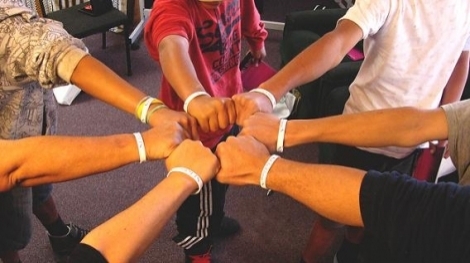Collective Change Award – Iwi
In 2013, the impressive work of Te Whakatōhea was recognised by the E Tū Whānau Collective Change Award for Iwi. Read their story here.
 Te Whakatōhea starts from the viewpoint that all Māori want to have good health, be well educated and to live in a safe and nurturing environment. They want adequate housing, access to meaningful employment, and to feel secure. They also want to have the knowledge and capacity to participate fully in society.
Te Whakatōhea starts from the viewpoint that all Māori want to have good health, be well educated and to live in a safe and nurturing environment. They want adequate housing, access to meaningful employment, and to feel secure. They also want to have the knowledge and capacity to participate fully in society.
In order to support whānau, hapū and iwi to achieve these aspirations, Whakatōhea is pioneering its own approach. It rejects the widely-accepted indicators of socio-economic status because it believes they are inaccurate, are based on a deficit model, and consequently fail to provide outcomes for wellbeing.
While Whakatōhea acknowledges that the lives of many of its whānau are seriously jeopardised by poor health, systemic failure (education, economic, health), unemployment and risky lifestyles, it also knows from working with its community that the aspirations of whānau, hapū and iwi go beyond the misfortunes of the past and the present.
Planning for future
With that in mind, the iwi has set about creating a strategy that is positive, productive and proactive. The starting point for the strategy that spans a 10 year period was a comprehensive wellbeing survey of whānau and hapū undertaken in 2010. The iwi interviewed 750 people aged between 15 and 89 and uncovered vital information. The final report, He Oranga o te Rohe o te Whakatōhea, established what “wellbeing” means from the point of view of members of whānau, hapū and iwi. The findings inform the strategic plan which focuses on attaining and maintaining wellbeing.
Community buy-in was important; the iwi wanted everyone to see their views reflected in the plan. Success depends on the community being motivated and mobilised to take part in creating and putting into practice the strategies.
Taking action
They are now turning this important policy document into action. They are working on whānau policies and procedures that will be delivered by Te Wheke Atawhai (the social services arm of Whakatōhea). Te Wheke Atawhai uses the principles of E Tū Whānau – te mana kaha o te whanau – to provide the framework for their work with whānau to ensure they are free from the burden of violence, co-existing disorders and addiction. At a practical level this has resulted in programmes such as ‘Call it out!’, a wānanga for rangatahi, and whānau wānanga retreats where the power and strength of whānau are nurtured and supported to achieve the shared vision of whānau ora, hapū ora and ka ora ai te iwi.
